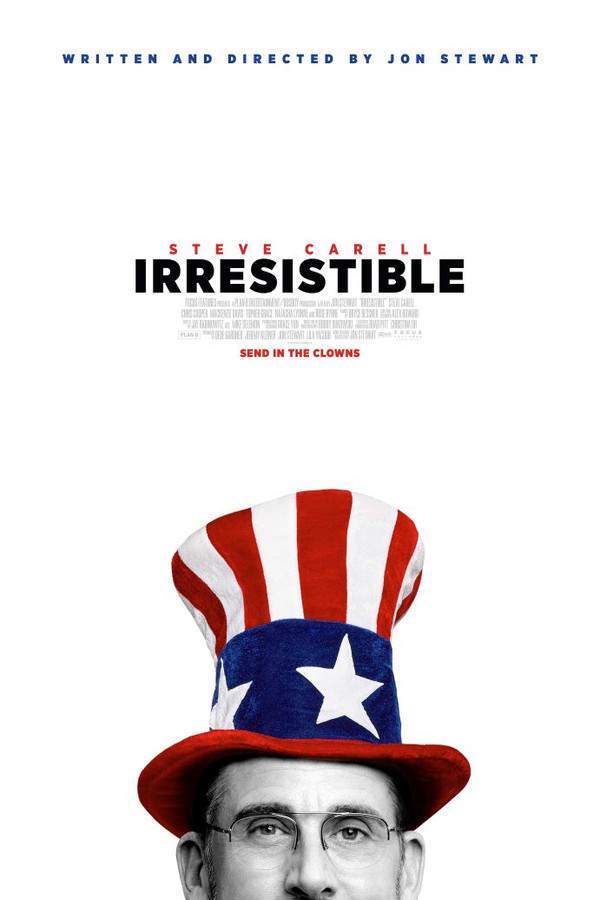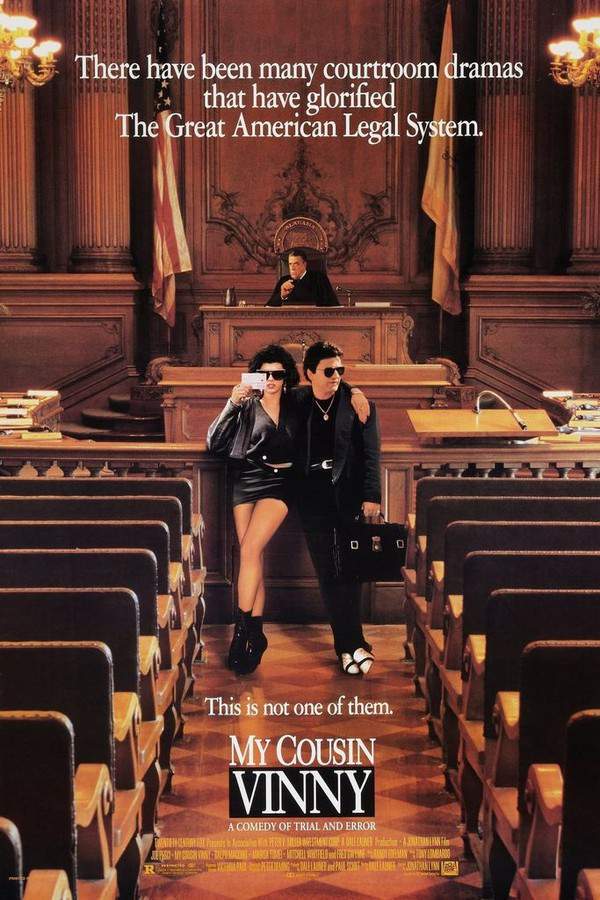
The Man Who Sued God
Year: 2001
Runtime: 97 mins
Language: English
Director: Mark Joffe
After losing his law practice, a disgruntled attorney turns to fishing. When his sole vessel is struck by lightning and destroyed, the insurer refuses payment, calling it an “act of God.” Determined, he re‑qualifies as a lawyer and sues the insurance company, naming the Church as God’s representative.
Warning: spoilers below!
Haven’t seen The Man Who Sued God yet? This summary contains major spoilers. Bookmark the page, watch the movie, and come back for the full breakdown. If you're ready, scroll on and relive the story!
The Man Who Sued God (2001) – Full Plot Summary & Ending Explained
Read the complete plot breakdown of The Man Who Sued God (2001), including all key story events, major twists, and the ending explained in detail. Discover what really happened—and what it all means.
Steve Myers Billy Connolly is a disillusioned lawyer who grows increasingly fed up with the corruption he perceives within the judicial system. He walks away from his career, buys a small fishing boat, and shifts to a quieter life at sea, hoping to find meaning and honesty in a different line of work.
His new livelihood is brutally upended when his fishing boat is struck by lightning, ripping it apart, burning, and sinking into the sea. He files a claim with his insurer, only to have it rejected on the grounds that the destruction was an act of God and therefore not liable. The denial fuels his frustration and a sense that powerful forces are bending rules behind the scenes.
Driven by a desire for accountability, he broadens his complaint into a radical legal move: he sues God itself, naming religious leaders across faiths as respondents along with their insurers. This audacious action sets off a courtroom showdown and turns the dispute into a national topic, attracting widespread media attention and stirring public debate about the rights of individuals against corporate policy language.
The case forces the court to confront a fundamental question: if God is the ultimate party, can divine responsibility be recognized or compensated within the legal system? The legal strategy, media glare, and the sheer novelty of the claim create a dynamic and dramatic atmosphere inside the courtroom, while the involved religious communities, their lawyers, and the insurance companies grapple with how to respond to an unprecedented challenge.
As the courtroom saga unfolds, Steve’s story captures the public imagination and catches the attention of a tenacious journalist who helps amplify his voice. Anna Redmond Judy Davis enters the scene, leveraging the media spotlight to rally support from others who feel similarly burned by insurance practices that invoke the acts of God clause. The publicity surge, however, draws fire from critics who accuse the coverage and the case of being built on sensationalism rather than solid legal grounds, complicating Steve’s personal life and his standing with his family.
The mounting attention places real strain on Steve’s relatives, who find themselves exposed to the spotlight and pressured by the evolving narrative. His ex-wife, already burdened by debt as the boat’s guarantor, faces new financial and emotional stress as the family weighs a move to Perth, away from the media glare and the tangles of the case.
Meanwhile, the public scrutiny also affects Anna, who becomes a lightning rod for controversy due to a history of disputes and attacks on insurance companies. Critics argue that her involvement is as much about publicity as about justice, casting doubt on the sincerity of the campaign.
Facing the prospect of a drawn-out legal battle and the personal cost it exacts on those closest to him, Steve reconsiders his position. He ultimately decides that he has achieved a moral victory, and withdraws from the case—but not before persuading the judge that the term acts of God used by insurers is misleading and oversimplified, a conclusion that reframes the controversy and leaves a lasting mark on how the system is perceived.
Last Updated: October 09, 2025 at 16:39
Explore Movie Threads
Discover curated groups of movies connected by mood, themes, and story style. Browse collections built around emotion, atmosphere, and narrative focus to easily find films that match what you feel like watching right now.
Witty underdog movies like The Man Who Sued God
Clever individuals use their wit to challenge powerful, absurd institutions.If you enjoyed the clever satire of The Man Who Sued God, you'll like these movies featuring smart protagonists taking on powerful systems. This list includes similar comedies about legal battles, media circuses, and intellectual challenges to authority, all with a lighthearted and witty tone.
Narrative Summary
The narrative follows a disillusioned but sharp protagonist who identifies a flaw or hypocrisy within a powerful institution. They embark on a quest, often legal or public-facing, to expose this absurdity. The conflict is driven by wit and principle, leading to a moral or symbolic victory that highlights the triumph of cleverness over sheer power.
Why These Movies?
These movies are grouped together because they share a core vibe of intellectual rebellion. They balance a light tone with a thought-provoking premise, featuring steady pacing and medium intensity as the protagonist's clever plan unfolds. The focus is on satirical humor and the satisfaction of seeing a rigid system challenged with intelligence.
Absurd legal comedies similar to The Man Who Sued God
Hilarious courtroom dramas and lawsuits built on far-fetched but logical premises.Fans of the ridiculous lawsuit in The Man Who Sued God will enjoy these movies centered on absurd legal battles. Discover similar films with witty satire, courtroom antics, and far-fetched premises that are played straight, creating a unique blend of intellectual humor and lighthearted entertainment.
Narrative Summary
The story is triggered by an eccentric or seemingly impossible legal claim. The narrative follows the preparation and execution of the case, exploring its philosophical implications and the public reaction. The courtroom becomes a stage for satire and witty dialogue, with the resolution often offering a humorous commentary on justice, belief, or human nature.
Why These Movies?
These films share a specific plot structure centered on an absurd legal premise. They maintain a light tone and straightforward complexity, using the courtroom setting for witty satire and amusing conflicts. The pacing is steady, focused on the buildup and execution of the case rather than high drama or deep emotion.
Unlock the Full Story of The Man Who Sued God
Don't stop at just watching — explore The Man Who Sued God in full detail. From the complete plot summary and scene-by-scene timeline to character breakdowns, thematic analysis, and a deep dive into the ending — every page helps you truly understand what The Man Who Sued God is all about. Plus, discover what's next after the movie.
The Man Who Sued God Timeline
Track the full timeline of The Man Who Sued God with every major event arranged chronologically. Perfect for decoding non-linear storytelling, flashbacks, or parallel narratives with a clear scene-by-scene breakdown.

Characters, Settings & Themes in The Man Who Sued God
Discover the characters, locations, and core themes that shape The Man Who Sued God. Get insights into symbolic elements, setting significance, and deeper narrative meaning — ideal for thematic analysis and movie breakdowns.

The Man Who Sued God Spoiler-Free Summary
Get a quick, spoiler-free overview of The Man Who Sued God that covers the main plot points and key details without revealing any major twists or spoilers. Perfect for those who want to know what to expect before diving in.

More About The Man Who Sued God
Visit What's After the Movie to explore more about The Man Who Sued God: box office results, cast and crew info, production details, post-credit scenes, and external links — all in one place for movie fans and researchers.

Similar Movies to The Man Who Sued God
Discover movies like The Man Who Sued God that share similar genres, themes, and storytelling elements. Whether you’re drawn to the atmosphere, character arcs, or plot structure, these curated recommendations will help you explore more films you’ll love.
Explore More About Movie The Man Who Sued God
The Man Who Sued God (2001) Scene-by-Scene Movie Timeline
The Man Who Sued God (2001) Movie Characters, Themes & Settings
The Man Who Sued God (2001) Spoiler-Free Summary & Key Flow
Movies Like The Man Who Sued God – Similar Titles You’ll Enjoy
Evan Almighty (2007) Spoiler-Packed Plot Recap
Playing God (2021) Movie Recap & Themes
Jury Duty: The Comedy (1990) Spoiler-Packed Plot Recap
In God We Tru$t (1980) Full Movie Breakdown
And Then God Laughed (2020) Complete Plot Breakdown
God (1998) Film Overview & Timeline
I’ll Be Suing You (1934) Spoiler-Packed Plot Recap
Trial and Error (1997) Complete Plot Breakdown
God Tussi Great Ho (2008) Movie Recap & Themes
Man’s Favorite Sport? (1964) Movie Recap & Themes
The Love God? (1969) Spoiler-Packed Plot Recap
The Big Kahuna (1999) Film Overview & Timeline
Lawyer Man (1932) Spoiler-Packed Plot Recap
My Man Godfrey (1936) Movie Recap & Themes
Dear God (1996) Plot Summary & Ending Explained







































